ISMA's LibCon2025 Featuring the World's Leading Liberal Thinkers Is Eight Days Away
Want to do something to resist authoritarianism? Sign up now to gather intellectual ammunition, show solidarity, and make connections with other freedom fighters
In a little over a week, on Aug. 14-15, the Institute for the Study of Modern Authoritarianism (ISMA), publisher of The UnPopulist, will convene its second annual “Liberalism for the 21st Century” conference—or LibCon2025, for short—in Washington D.C. at the Watergate Hotel. Once again, ISMA has gathered the world’s leading liberal thinkers, journalists, and advocates for two days dedicated to countering the rise of illiberalism and charting a course forward for a revitalized liberalism that can answer the challenges of the modern era.
Just like last year, the conference is nearly at full capacity with a week to go. All-Access passes, which are $550 and include two receptions and dinners, are sold out—but you can put yourself on the waitlist. There is still time to register to obtain a basic pass for $100 that will give you access to all the panels and includes the Friday lunch. (Readers can use promo code LC20 for a 20% discount; students are free.) We’re about to hit maximum capacity. If you would like to attend, please don’t wait to register.
Want to see what we’ve got in store? Read on. LibCon2025 has an exceptional lineup.
Boiling the Frog: What Does the Transition from Liberalism to Illiberalism Feel Like?
Citizens of relatively free and open liberal democracies in the West often have no living memory or direct experience of life in closed authoritarian systems. But as some of their societies transition from free to unfree, how will their everyday lives change materially and emotionally? As the relationship between the state and citizens changes, how does this affect relationships in other spheres: the family, workplace, among friends and colleagues? How do language and conversations change? How does the psychology and philosophy of living shift over time?
With a novelist’s eye for observation and knack for storytelling, Suketu Mehta, author and Pulitzer Prize finalist for Maximum City, will kick off the conference with a vivid picture of life in unfree polities where individual life plans are required to yield to broader state goals.
Liberalism at a Time of Constitutional Crisis: Taking Stock of U.S. Democracy
Liberal democracies around the world are experiencing the rise of polarization and populism, and America is no different. How well have America’s institutions—Congress, executive agencies, legal, media, civil society, and diplomatic—held up in the face of authoritarian pressures? How do defenders of a liberal order operate in a radically changed environment to restore accountable government that respects the liberty and equal dignity of all?
Panelists Jack Goldsmith, Francis Fukuyama, and Ruth Marcus, as well as the panel’s moderator, Benjamin Wittes, will explore these questions together.
Dinner Keynote
Vladimir Kara-Murza, the Russian opposition politician, will deliver the dinner keynote.
Perils of a World of “Sovereignist” Nation States
The post-Cold War “liberal” international order—under which various countries agreed to respect universally-recognized individual and human rights within their own borders, on the one hand, and pursued their mutual interests through multilateral institutions, on the other—has been abandoned by the United States, its imperfect champion.
What will replace this is not yet fully clear, but an aggressive form of nationalism that prioritizes national sovereignty over mutually-beneficial goals and universal values is currently ascendant. What will a world in which great powers take a zero-sum view of global affairs and pursue their own self-interest above all else look like, and what are its implications for world peace, commerce, and culture?
Nayyera Haq will moderate a discussion on this topic between Jennifer Mittelstadt, Daniel W. Drezner, and Janice Stein.
Is Restricting Cross-Border Human Movement Incompatible with Liberalism?—A Friendly Debate
Immigration is one of the key political fault-lines of our time. Is there a tension between liberal polities’ commitment to a rights-respecting and constrained state that respects human freedoms, and restrictive immigration policies in the name of national sovereignty?
This will be a friendly debate between two liberals—Chandran Kukathas, author of Immigration and Freedom, and David Goodhart, founding editor of Prospect magazine—on liberal approaches to immigration policy. Bill Kristol will moderate.
Practical Strategies for Resisting Authoritarianism: Lessons from Abroad
Strongman leaders in liberal polities contest elections on a level playing field but, once elected, often make themselves electorally more competitive by changing election rules, stacking the judiciary, co-opting (if not controlling) traditional and social media, defunding the opposition and dissidents, and generally diminishing the civic space for resistance.
What are some of the communication and electoral strategies that have—and have not—proven effective in overcoming these obstacles that liberals can use to reach out to the public and prevail at the ballot box? This panel features leaders of pro-democracy movements from around the world—Alexander Sikorski, Felix Maradiaga, and Sabina Ćudić—who have had success in defending liberal principles or arresting the advance of illiberal populism. Yascha Mounk will moderate.
Breakout Panel 1: Subcultures of the Neo-Right
The rise of the neo-right in America and parts of Europe is to some extent a bottom-up and spontaneous phenomenon. Reactionary ideas have spread subterraneously through virtual and real subcultures—sports, video games, wellness, and others—that then provided the ballast for right-wing political movements. Understanding the origins and proliferation of these subcultures is necessary to defeating them.
This panel—which features Tina Nguyen, Talia Lavin, Will Sommer, and moderator Asawin Suebsaeng—will discuss the far-right cultures that form the ideology of the right, from QAnon and the alt-right to Neo-Reaction, Groypers, the “manosphere,” and “trad wives.”
Breakout Panel 2: AI and Liberal Democracy
The development and widespread deployment of AI presents a host of new challenges to governance in liberal democratic societies. On the one hand, they will hand rulers powerful new means for controlling the citizenry. But transformative technologies also bring opportunities. This panel will explore the impacts of AI: What are the possible trajectories, and how can defenders of liberal democracy help shape them for good? How can these technologies be deployed by citizens to make rulers more accountable and in strengthening respect for human rights?
Panelists saffron huang, Clay Shirky, and Puja Ohlhaver, as well as moderator Mike Masnick, will explore these questions together.
Breakout Panel 3: Liberalism Beyond Elites
Many believe that contemporary progressive governance has become out of touch with the needs of ordinary people. Its focus on social and cultural goals to the neglect of more basic concerns has limited its appeal to elite enclaves, often alienating both urban working-class and rural voters. This panel will explore a “liberalism for the heartland” that is a corrective to progressive excesses and is able to compete in areas currently receptive to illiberal populist alternatives.
Richard D. Kahlenberg will moderate a discussion between Stephanie Muravchik, Samantha Hancox-Li, and Ed Warren on this topic.
Breakout Panel 4: Restoring the Mutually Supportive Relationship Between Religion and Liberalism
Liberal democracy has historically relied on religion to inculcate personal virtues necessary for self-governance. And religion, in turn, has depended on liberal toleration for the space to flourish. However, the rise of aggressive religious nationalism that seeks political domination has transformed the relationship between liberalism and religion from cooperation to conflict. How can we recover the mutually cooperative understanding between the two? How should contemporary liberalism change? What arguments can be marshalled to faith traditions that embrace a hostile posture toward liberalism?
Jonathan Rauch will lead a discussion that features Mustafa Akyol, Michael Wear, and Rabbi Gideon Sylvester on the possibility of restoring the mutually supportive relationship between liberalism and religion.
Philosophical Roots of Illiberal Movements
Illiberal populism’s reliance on simplistic slogans and mass support often conceals a range of ideological roots. From robust nationalism to hyper-individualism, these philosophical underpinnings require study in order to understand both the nature and trajectory of the illiberal threat.
Panelists Damon Linker, Tom G. Palmer, Laura K. Field, and moderatorZack Beauchamp, will dissect the diverse intellectual origins of contemporary illiberalism, exploring ways in which liberalism can respond at the level of ideas.
Closing Keynote: Liberalism After Post-Liberalism: A New Founding
Enlightenment liberalism arose 250 years ago as a revolt against tyranny, stagnation, superstition, and wars of religion. The freedom and tolerance it fostered allowed human ingenuity to be harnessed for social and economic progress. But post-liberal ideologies are attacking liberalism without providing a coherent governing alternative. What would a renewed and revitalized liberalism that replaces these challenger ideologies look like? What are some of the reasonable critiques of 20th-century liberalism that 21st-century liberalism ought to entertain and incorporate? How would a new liberalism distinguish itself from the status quo—what would it change? And what would it keep?
This fireside chat-style discussion will feature two speakers who hail from different ideological backgrounds—Derek Thompson and Steven Pinker—who together will attempt to articulate a broad forward-looking vision of a liberalism for the 21st century.
BONUS: Live Zooming In Podcast with Radley Balko and Jamelle Bouie
In addition to all of the above, ISMA is also planning a live taping of an episode of Zooming In hosted by Aaron Ross Powell and featuring The New York Times’ Jamelle Bouie and Radley Balko, the former Washington Post writer and premier criminal justice reporter who publishes The Watch.
Also, Persuasion and American Purpose will do a joint live podcast with Yascha Mounk and Francis Fukuyama as co-hosts and speakers Sabina Ćudić and Steven Pinker as guests.
ISMA’s inaugural event last year—LibCon2024—became the biggest conclave of true liberals worldwide fighting the authoritarian threat. This year’s conference—LibCon2025—promises to be even better.
Hope to see you there!
© The UnPopulist, 2025
Follow us on Bluesky, Threads, YouTube, TikTok, Facebook, Instagram, and X.
We welcome your reactions and replies. Please adhere to our comments policy.



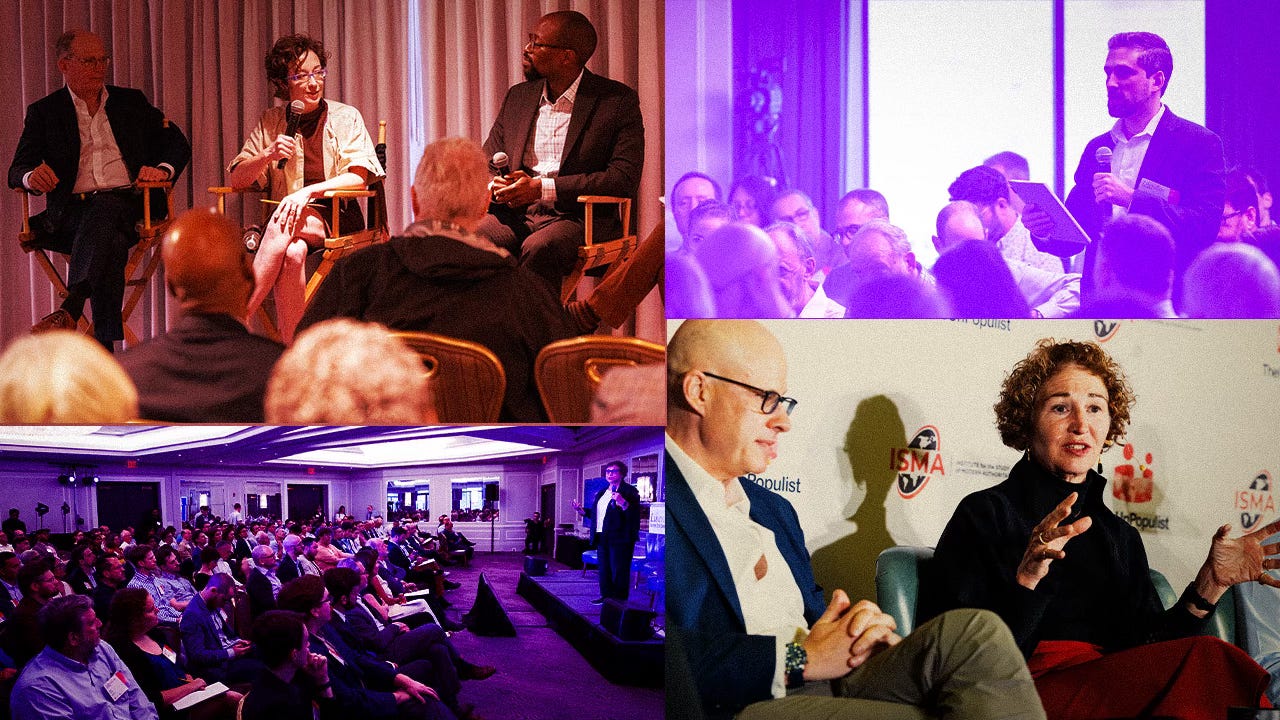
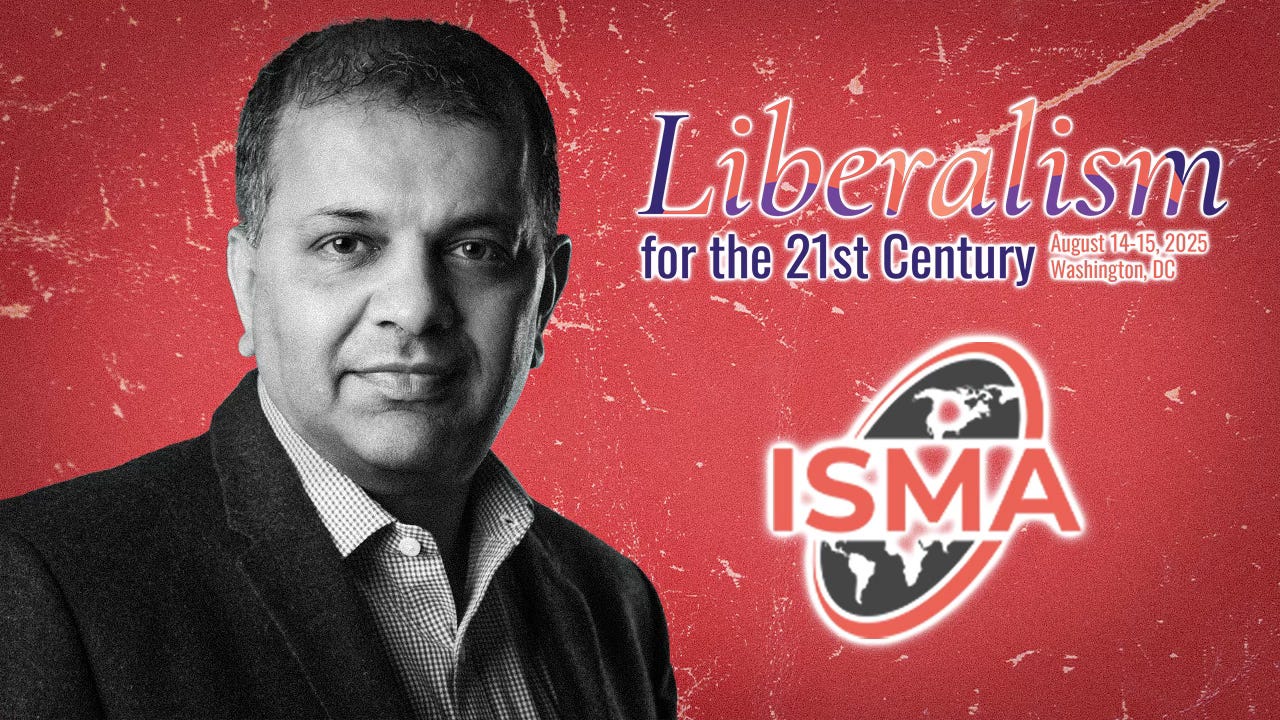
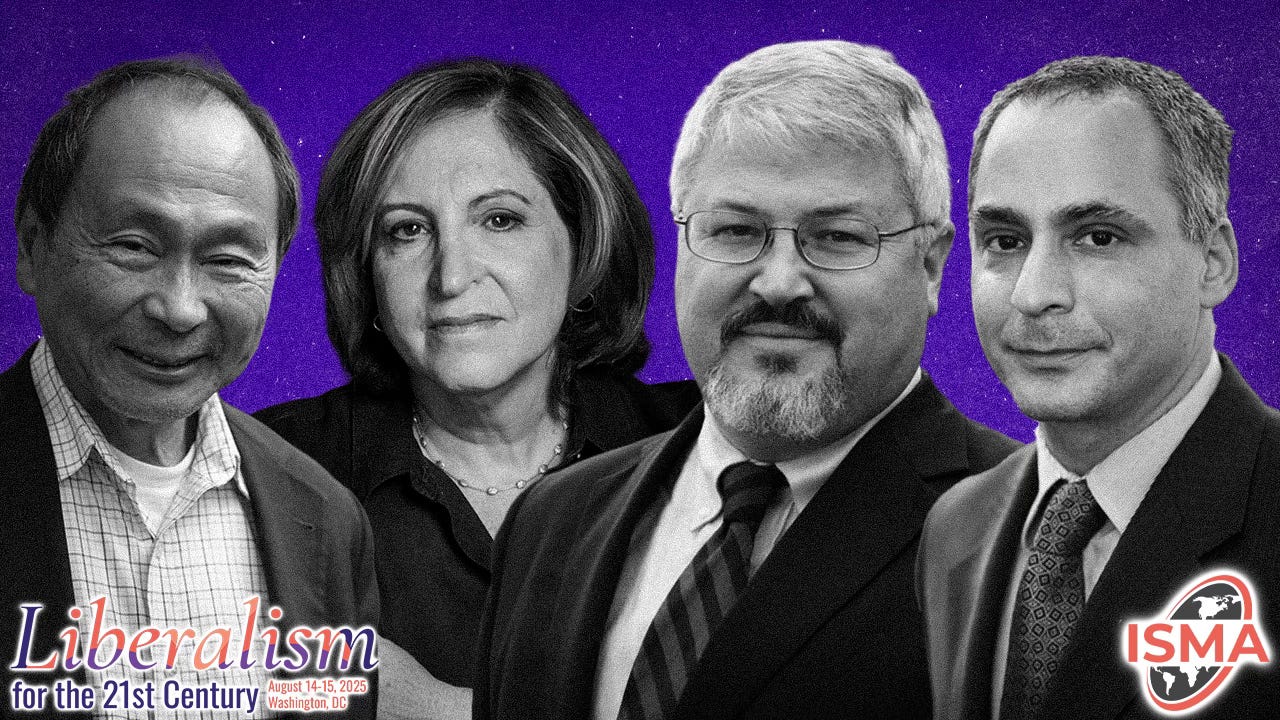
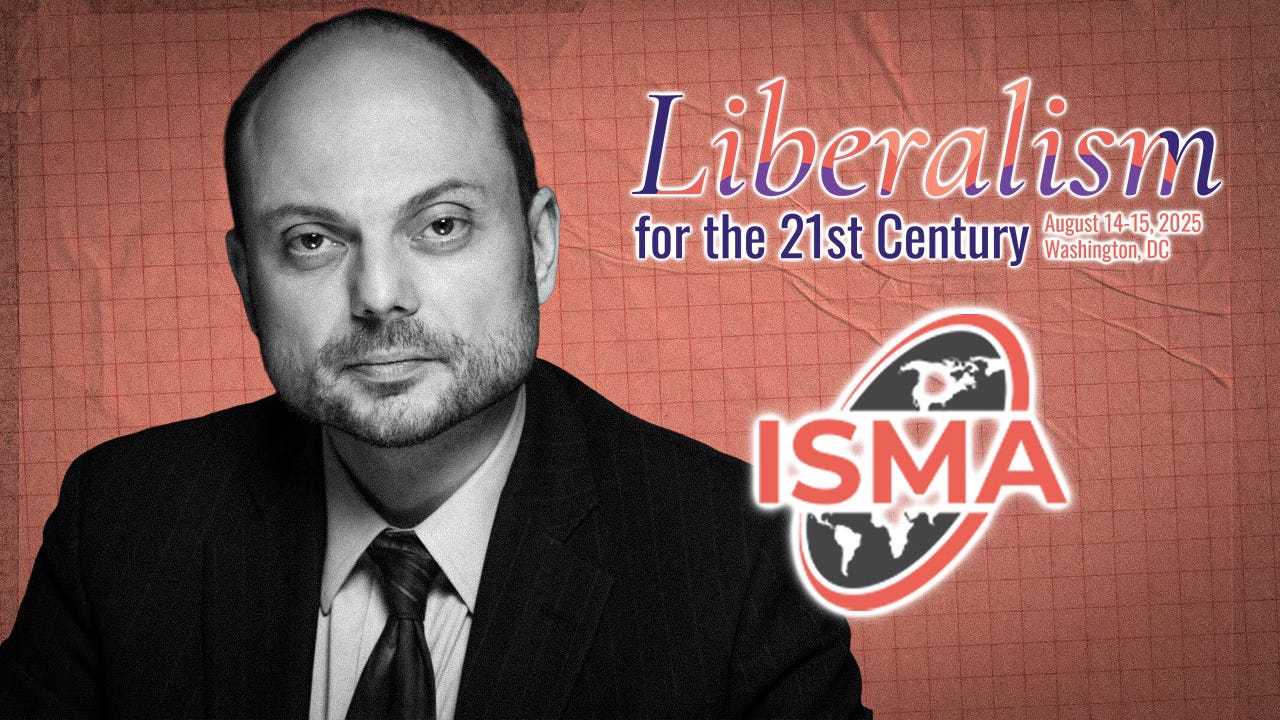
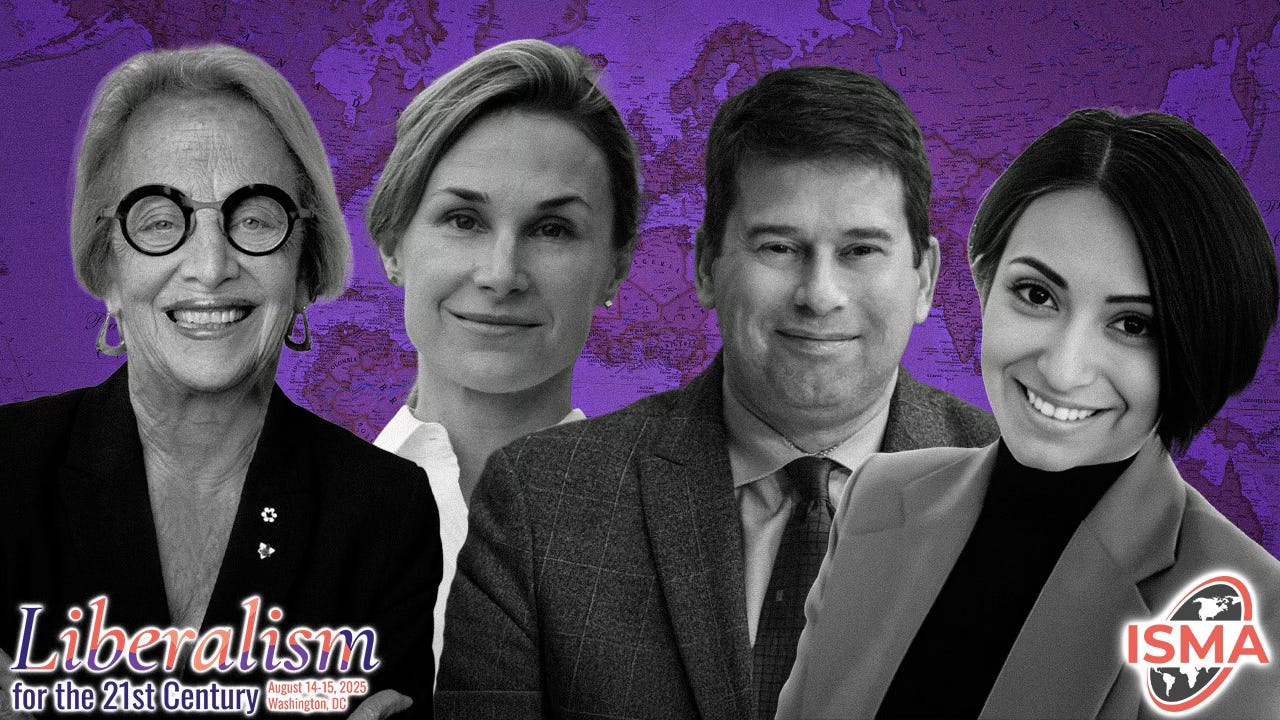
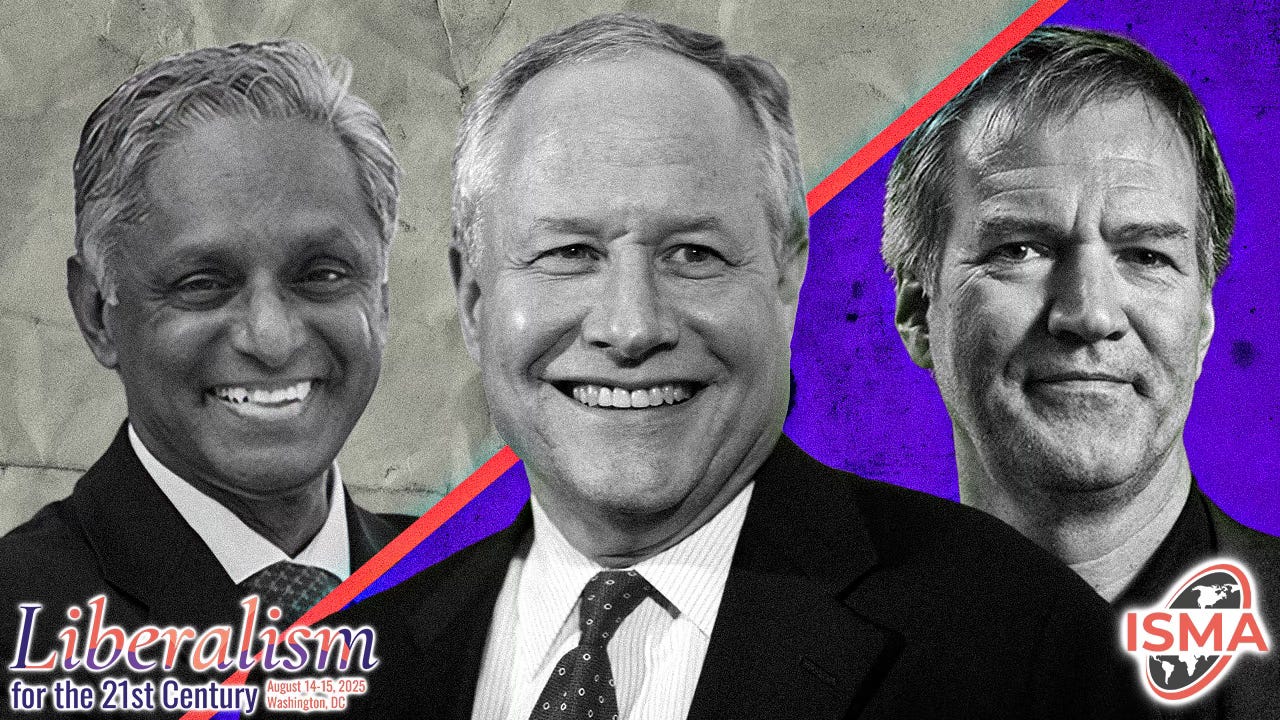
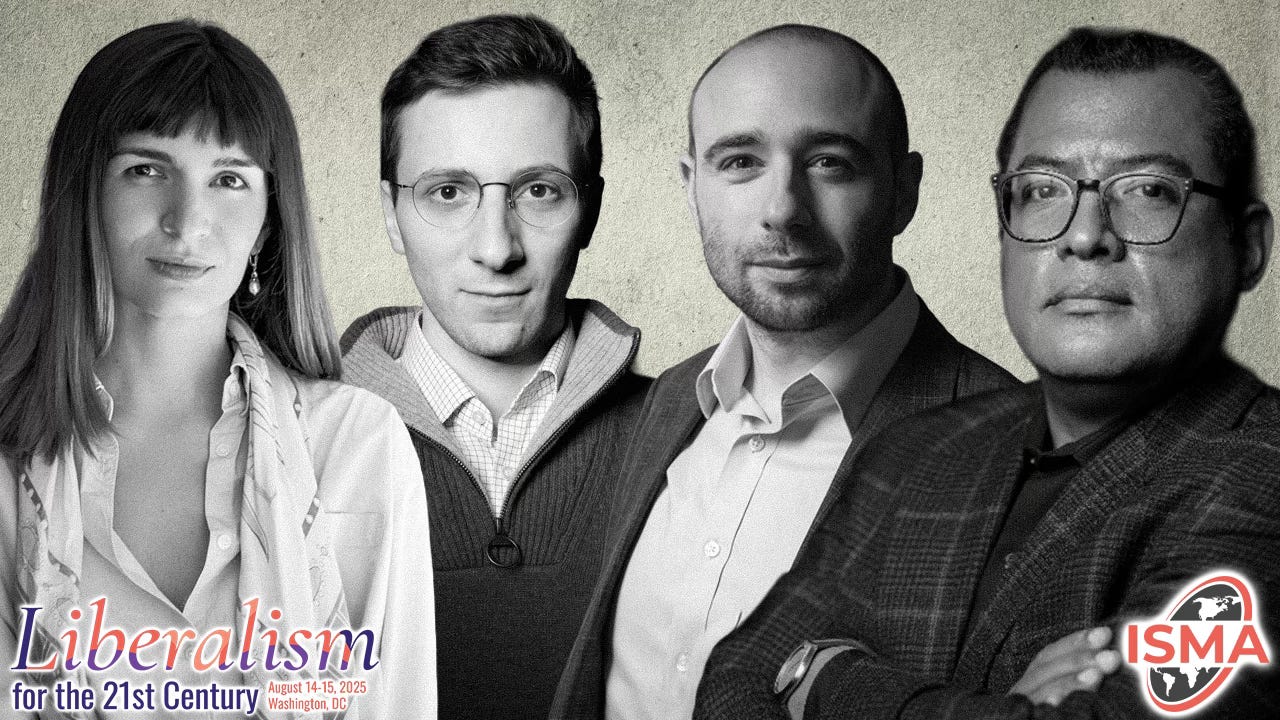
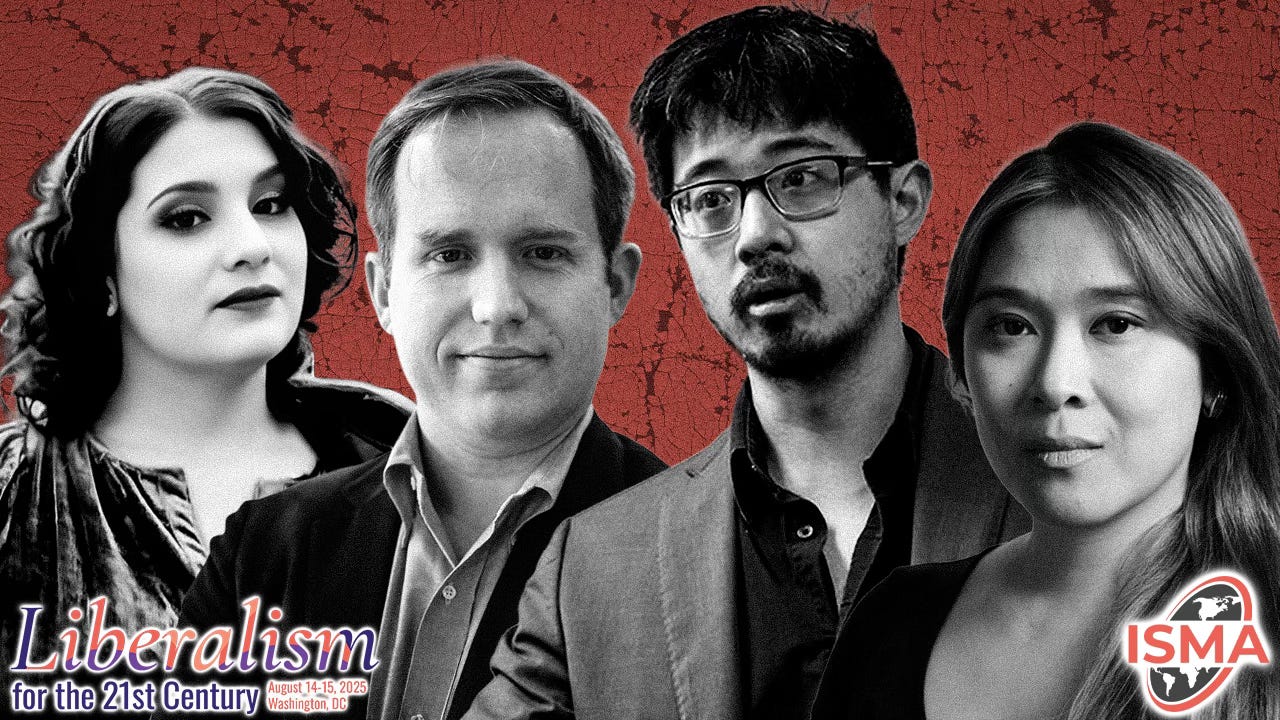


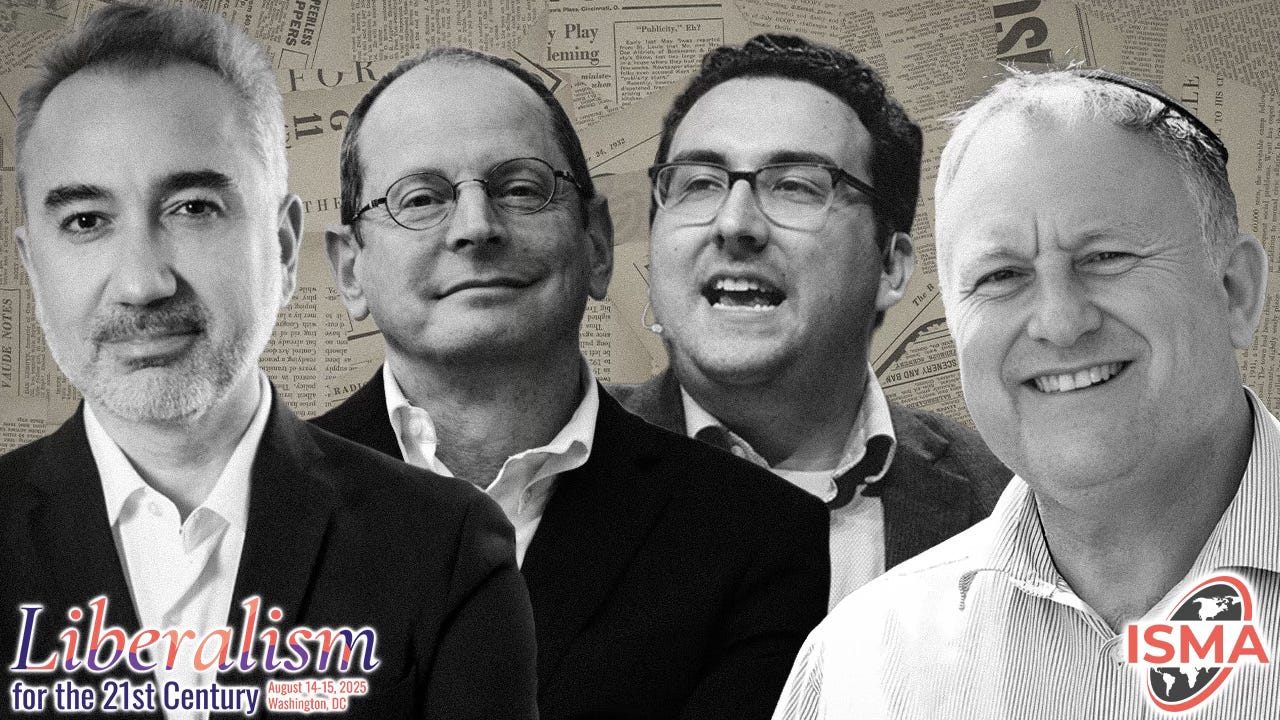
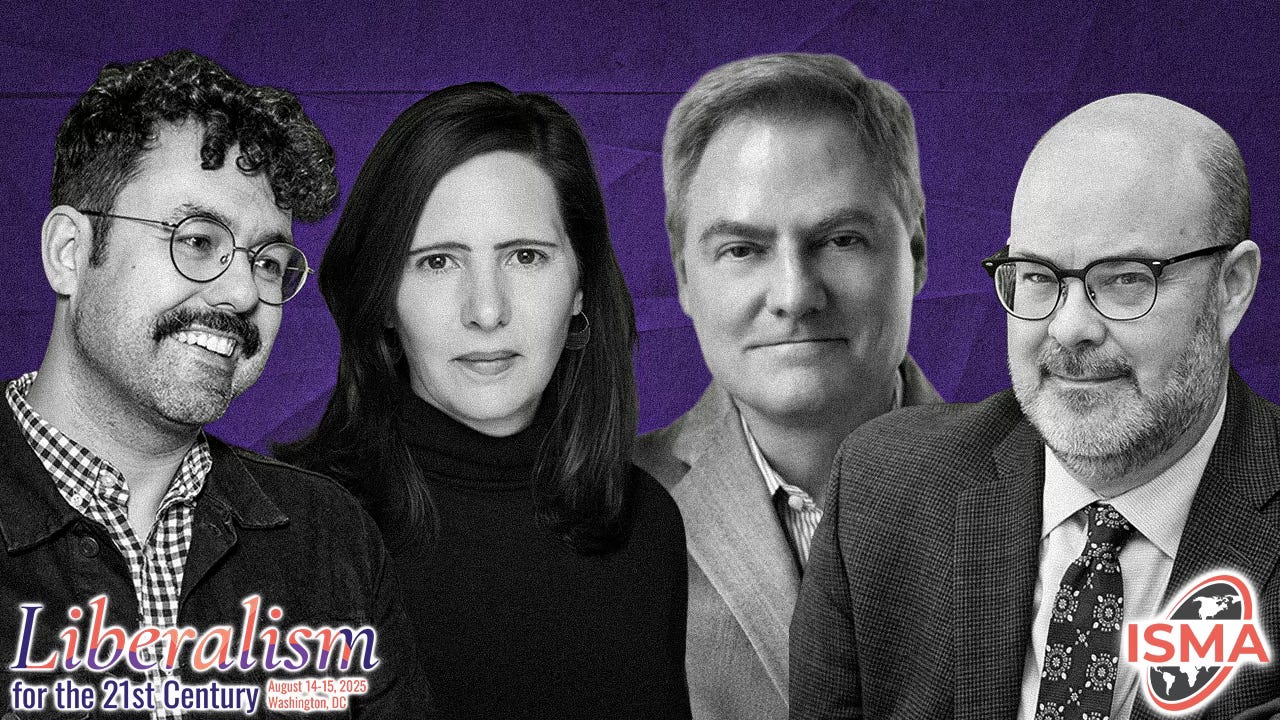

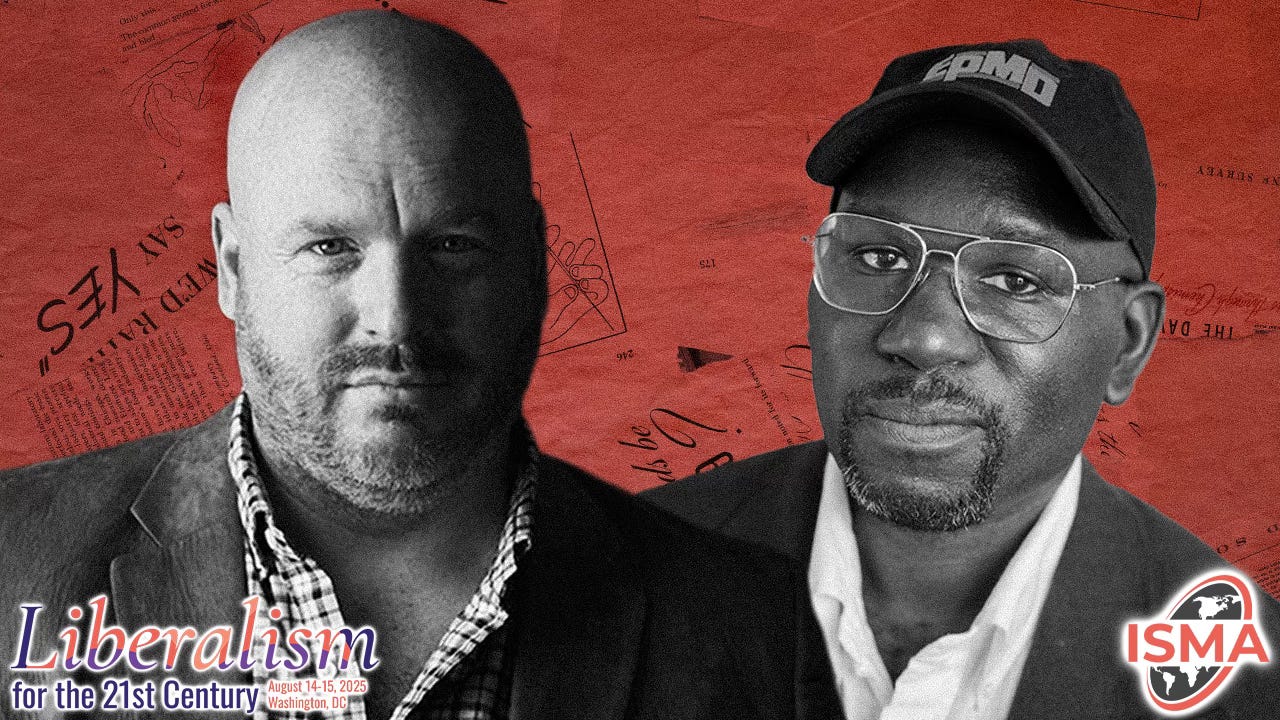

Some of these panels look very interesting, but I'll be honest: the presence of Bill Kristol is a big turn-off and the conversation about immigration looks discouragingly one-sided. I've covered the Heterodox Academy conference a couple of times and might be interested in covering a LibCon event at some point, but the prospect of spending $550 to have some of that end up in Kristol's unprincipled pocket is not appealing.
There is no option to attend virtually? So the message is you have to be in the beltway to be an attendee of significance?